8. Inside Llewyn Davis (2013) – The New Ending
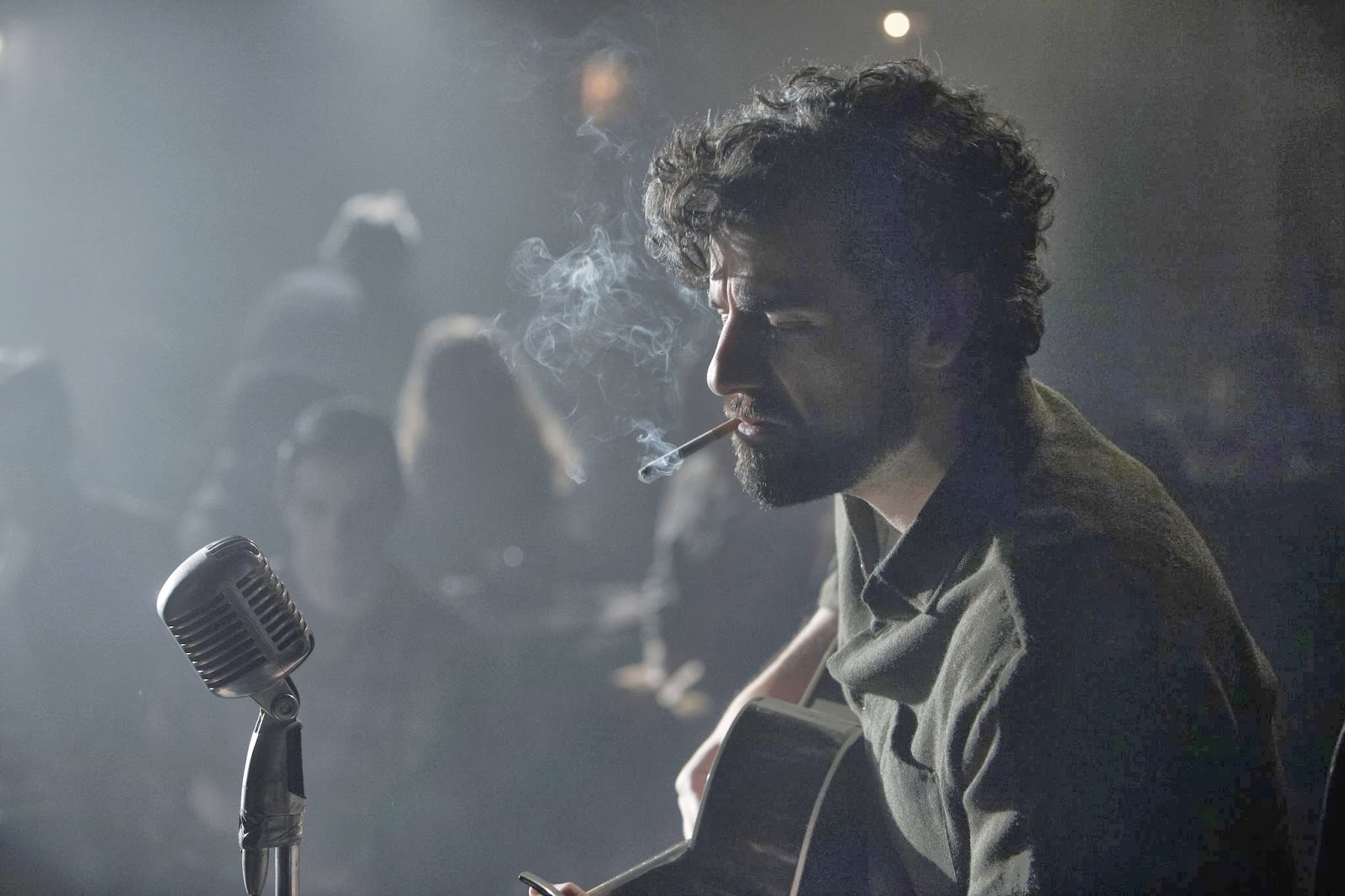
Describing the life of folk singer Llewyn Davis seemed to the Coen brothers more like the chance to visualize their very own folk song. The film begins with Llewyn beaten up and thrown outside a bar, only to say “Au revoir!” to his attacker and move on, introducing us to his everyday life throughout Greenwich Village and a plethora of melancholic and blackly comedic folk-song-material situations.
So how does a seemingly non-plot tale like it end? With the very same way it began. The string of events leading up to his new beating could be a bit different, but once again Llewyn is beaten up, thrown in a dark alley, and all he manages to say is “Au revoir”, which is actually French for “See you again”, meaning our hero was very well aware of his fate to begin with, and still is.
Whether the protagonist will change along with his life, what came after the beating, and whether he’ll eventually reach home (like the cat, named Ulysses) are all questions that could as well be handled by a folk song, but never truly needing an answer.
The Debate: Our antihero shares some knowledge with us, explaining that “If it was never new, and it never gets old, then it’s a folk song.” And this seems to be the case with our hero’s life, which will never likely find a mature conclusion, but rather the same old one.
7. Prisoners (2013) – The Beginning of a Beautiful Friendship
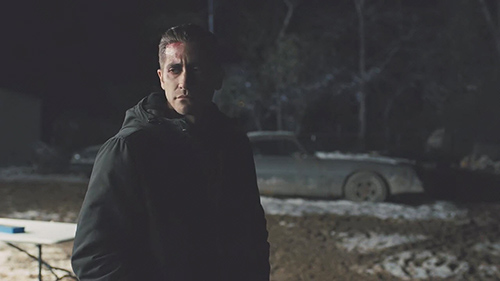
This bleak crime drama shocked audiences and critics when it was released, apparently because of how well it was made (and because it didn’t win the Oscar for Best Cinematography, according to the little fanboy that is me). Hugh Jackman loses his daughter (and temper) during a cold winter, and simultaneously attempts to find her with detective Jake Gyllenhaal – but they come from very different backgrounds and use very, very different approaches.
Faith is a main theme – and issue – in the movie, and it is no less so during the heart-stopping ending, but by then it has departed from its original religious meaning and has transformed into something more humane and important. The desperate father was thrown in a dark pit, left alone with only his daughter’s whistle as a companion, just a few steps from the crime scene.
The detective reaches the crime scene searching for him, and all he listens to, coming from a huge distance and from several feet underground, is a faint whistling sound. From there, the film ends. Will he actually save the father, did he really listen to the whistle, and will the father keep on whistling without knowing he could eventually find a fitting response?
The Debate: To be faithful to other human beings seems to be the most cathartic solution offered by this film, and yes, we do believe that the detective actually responded to the consistent whistling. Why else would we see him moving to leave, only to instantly turn around and decisively look at the source of the sound?
6. Why Don’t You Play In Hell? (2013) – The Director’s Ending

To try and summarize this film, or any of frantic filmmaker Sion Sono’s works to date, would be a task (and a paragraph) too many. Let’s just say that in this film, a cinephile film crew tries to shoot a film involving actual yakuza members – and slaughter. The film is an actual love letter to cinema by the masterful director, and it is one of the most underappreciated films of its year.
The ending to such mayhem and delirium could not be very linear and directly served, but it couldn’t be any better, either. The protagonist/director, after the rest of the film crew has perished, desperately tries to save the film reel, which seems to be all that matters to him, only to break the fourth wall while running toward the camera. He looks at us and trespasses off-screen; a “Cut!” is heard, and the actor leaves the screen for good. All of this is a movie, our character’s fate is left unseen, but we get to see the greatest picture for the first time – pun very welcome.
The Debate: Whether the director manages to save his film is of no importance, as we conclude after a few minutes of thought; we’ve just experienced one of the best examples of a film-within-a-film, a meta-allegory of how it really is to be involved with the cinema world, even how Sion Sono has gone through the film industry himself.
No linear explanation or continuation of the plot matters, as this story is personal to each and every film auteur. All that matters for every person is that “he makes one great film in his life – only one”, as the film’s mantra says.
5. Force Majeure (2014) – The Ending You Choose

A family in idyllic French Alps vacation. A huge avalanche putting their lives in danger. And the patriarch running to save his own troubled self. Nothing will ever be the same again – or was it ever the way they thought it to be?
A caustic commentary on family values and stereotypes, a letter of hate towards patriarchic foundations, and at least a sad realization that (hu)man is still, deep inside, an egoistical beast, all neatly packed up as a beautifully shot black comedy that was nominated for an Oscar for Best Foreign Language Film.
In the end, it is the mother of the family that makes a hard decision for herself and those surrounding her. A dangerous bus driver seems to be irritating the already troubled matriarch, who decides to convince the family and the rest of the passengers to come down from the bus and continue walking toward the airport, with unknown results.
So, once again, a false decision driven by fear sends a whole pack of people to an unknown destination – will they survive? Will they reach their destination? Will the family now turn against the mother? And was the mother even right to begin with?
The Debate: None of the question marks provoked by the end of the film have an easy or certain answer. It is a decision, and like all decision each viewer makes in his or her everyday life, it is one with very uncertain motives and results.
What seems to interest the director, however, is the exchange of hopeful looks and half-smiles around the walking cast. And with this last shot, the director seems to have made an allegory for the whole human race living in fear – no one can overcome it alone, but we still can find a bit of solace in each other.
A more grim reading of the same scene could speak of restraint and fear, making us lose the point, but to be involved with a such darker viewing of the human race would mean we, as the viewers and protagonists of the film’s questions, are starting to lose the point.
4. Mommy (2014) – The Ending He Didn’t Want
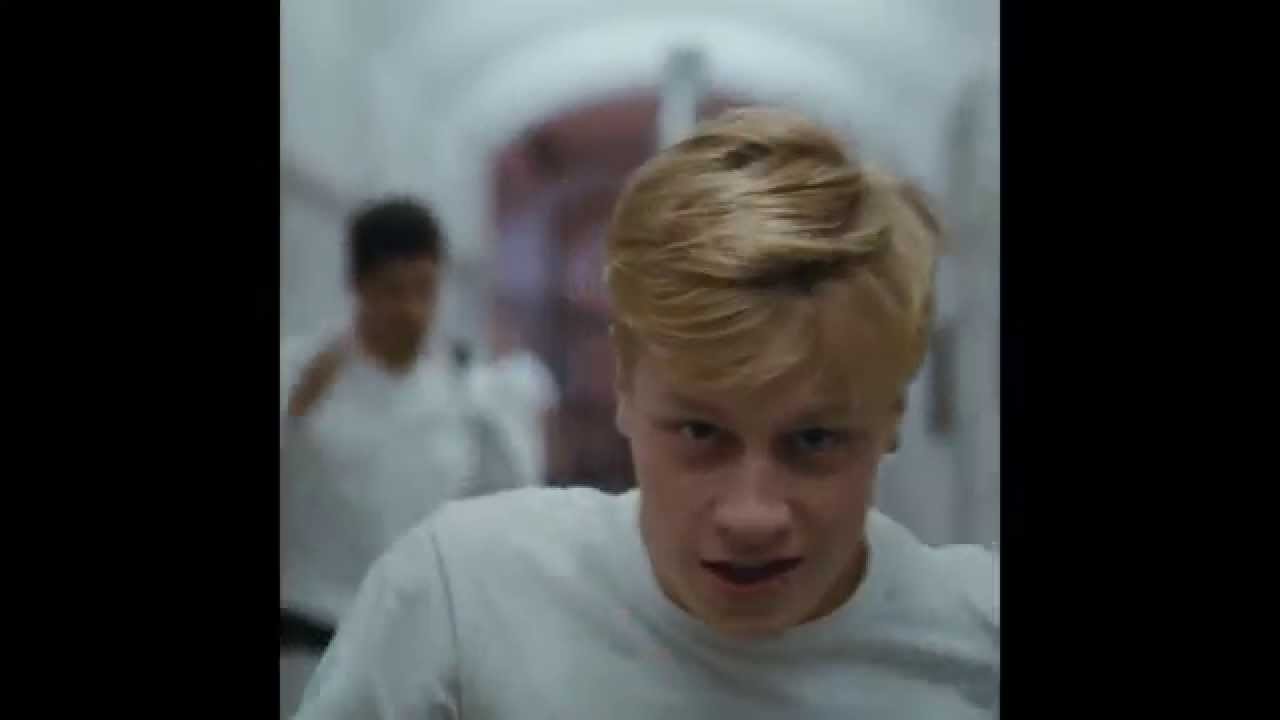
A strange new family scheme is formed by a single mother, her troubled young son, and a motherly neighbor overcoming a personal difficulty. What binds them together seems to be hope, and what threatens to tear them apart is the son’s aggressive behavior.
The film is set in a society that passed a law allowing parents to give up their kids and have the state take care of them. This is the last-chance resort for which the desperate mother seeks refuge, giving her son to the state, because she’s given up on his uncontrollable behavior.
But the son, a symbol of mayhem as well as of unconditional love (and how often do these two collide, after all), hasn’t said his last word; in the closing scene, we see him breaking free from the hands of the state’s guards and reaching for a very high window toward freedom. Is his freedom a homecoming or suicide? And will his mother accept him back? Will he survive the fall? And if he does, will the state allow familial love to reign over all?
The Debate: All question marks seem to be left up to the viewer to decide, and this is a very well-intended choice from director Xavier Dolan. It is not objective that the film’s characters are lovable or can actually be proven helpful for each other, but we can choose the ending we wish to see inside our minds for the myth we just watched unravel in front of us, a film merely proving that unconditional love will win in the end, despite the body count. This film also seems in the end to be driven not by its plot, but by the sheer love towards its characters.
3. Gone Girl (2014) – Their “Long, F***ing Climax”
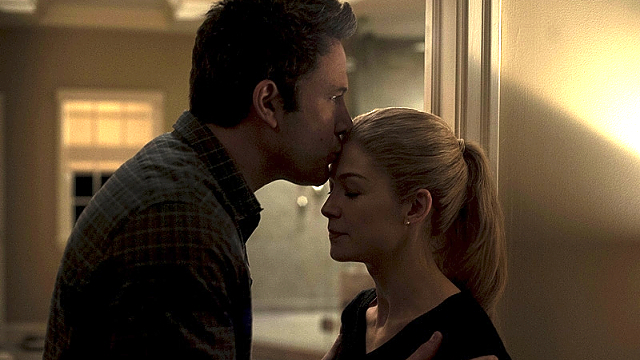
Ah, yes, the ending that divided viewers worldwide as to their final verdict toward one of the decade’s best films. The ending that actually helped discern whom of the viewers had actually gotten to the essence of this cunning societal satire disguised as a mystery thriller.
This film is one hell of a rollercoaster, beginning from its ascent toward the peak of a disappearance mystery with multiple suspects and clues leading to nowhere (or to somewhere all together), up until the middle-point twist and the frantic slide toward a catharsis for the protagonists (or antagonists).
The slide is there, but…. the catharsis never comes. Amy has made a great plan to drive her husband deep inside the web of spousal eternity. They are having a baby. They are a famously joyful couple. And they’ll always be together, with him being unable to respond to the terrible acts she’s committed, and her being forever trapped (by her own self) in the role society chose for her, which she was trying to escape from in the beginning. There’s no catharsis, there’s no escape, there’s no Amy and Nick anymore.
The Debate: Nothing will happen, Internet conspirators. Nick won’t rebel; Amy won’t pull another Amy, as she’s lost all else aside from her married life. This is a take-it-or-leave-it cynical satire of married life from the director of “Se7en”, to destroy first dates for many years to come. Maybe it’s for a good reason.
2. Anomalisa (2015) – Each One’s Ending
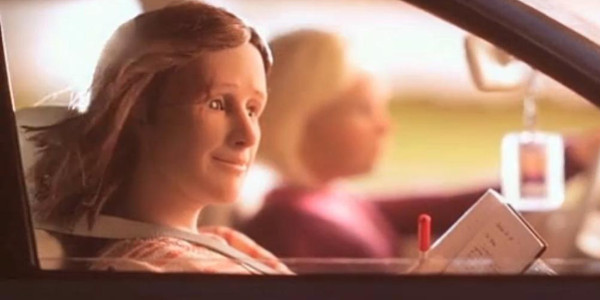
It’s hard not to feel like something is wrong with today’s cinema, when a film involving figures made of plasticine provokes more humane feelings than any drama has for the past decade. Don’t get fooled by the colorful nature of the animation; this is a deeply dark and cynical film that bites and claws at our deepest desires, fears and existence.
An experienced salesman falls in love with an ordinary girl who’s come to the same hotel as him, to listen to his speech. However, don’t get all too prepared to cheer for this ship before seeing it leave port.
In the end, it is the human nature that reigns above all. Michael returns to his family life after having unreasonably lost all interest in Lisa, who is optimistic and reciting a love letter for him, being the “one in the sun” as her favorite song would suggest, in the last shot of this precious film. Will they ever get back together? Did Lisa ever really exist? And what exactly is happening to Michael’s life?
The Debate: “Anomalisa” clearly isn’t a horror film, but it truly is a film of existential horror. The film’s questions can trouble us so much because it is us who actually makes them, everyday. What is wrong with us? Did we make the right decision? Did we follow the right person? Why do we choose to bind our destinies with other people? This film is not one to provide answers, only one to visualize our deepest questions and calm us down; we are not alone in this, whether or not we want to be.
1. The Lobster (2015) – Our Own Ending
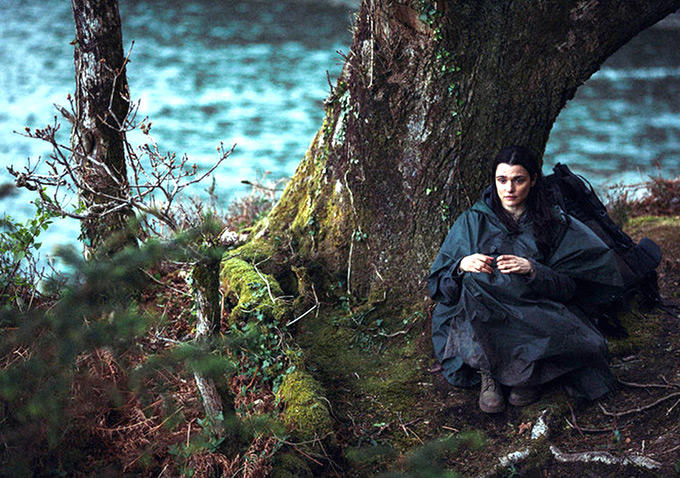
The last film on this list happens to have the strongest open ending of them all. It is a masterpiece from Greek director Yorgos Lanthimos, and really does do its duty, changing from scene to scene from having to make us laugh, or cry, or understand human nature. In a dystopian future, single people are taken to a hotel, where they are obliged to find a romantic partner in 45 days, or they are transformed into beasts and sent off into The Woods.
The film serves as a commentary on romantic relationships in modern society, and it is a harsh one. From mocking the scheme of finding a partner to marry just because you have to, to making fun of the culture of sworn singles, in the end this is a film that searches, along with its protagonist, for the nature of true love – without it being an end in itself.
The film ends on a heartbreaking note; having escaped from the restrictive and one-sided rules of both the Hotel and the Woods, David sits in a restaurant along with the Blind Woman.
To be together, he needs to come to the same terms as her, thus losing his sight. He takes a last look at her, because he needs to remember how she looks like before losing sight of her forever. He takes a knife, goes to the toilet, and starts preparing. We cut to the Woman, sitting by the table, waiting. And the film ends. Our hearts are about to burst, what actually happened?
The Debate: Better than me, I think, for answering the ending’s question is co-screenwriter Efthymis Filippou, who said: “I think that in the end he leaves her there. But this is not an issue I can give the real answer to, for a long time now.” The viewer experience is what gives the final answer to whether the two of them leave the restaurant, whether they are both blind in the end, and whether true love is worth the absolute sacrifice in the end.
Author Bio: Leonidas Vyzas is a Law student who somehow managed to start studying Film Direction. Right now he is about to live for half a year in Bergen, Norway. He prefers being a film director than a lawyer for film directors, and would love making a documentary about the most interesting people (and foods) of his life.